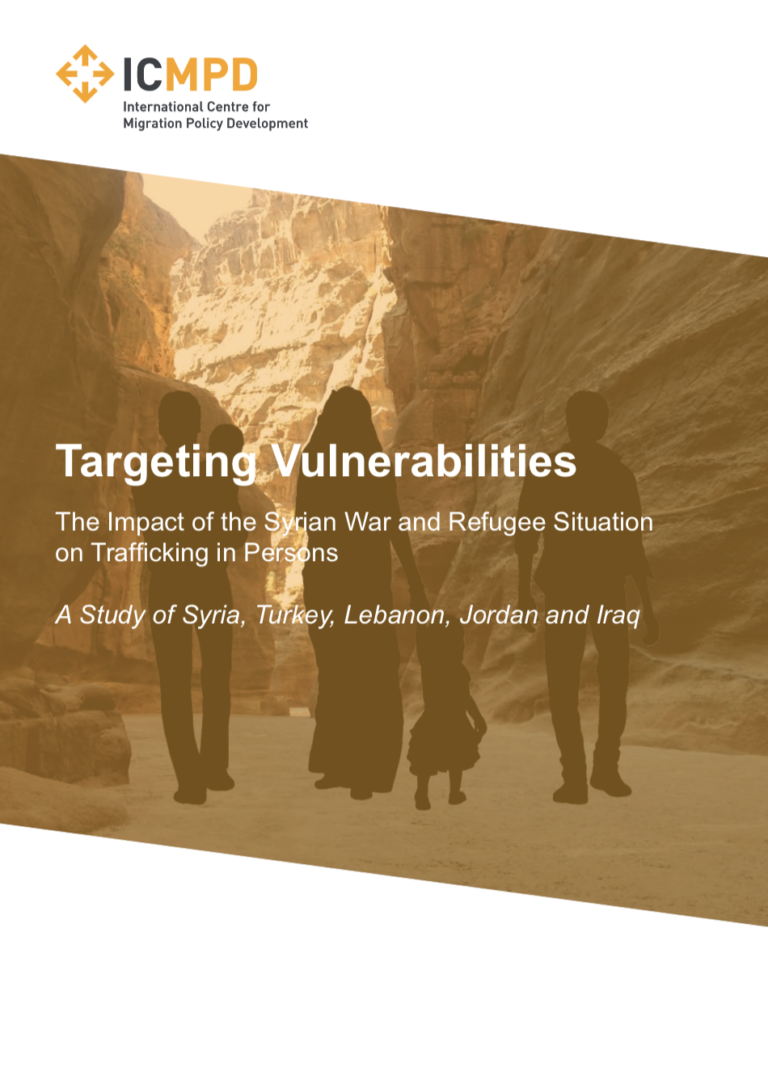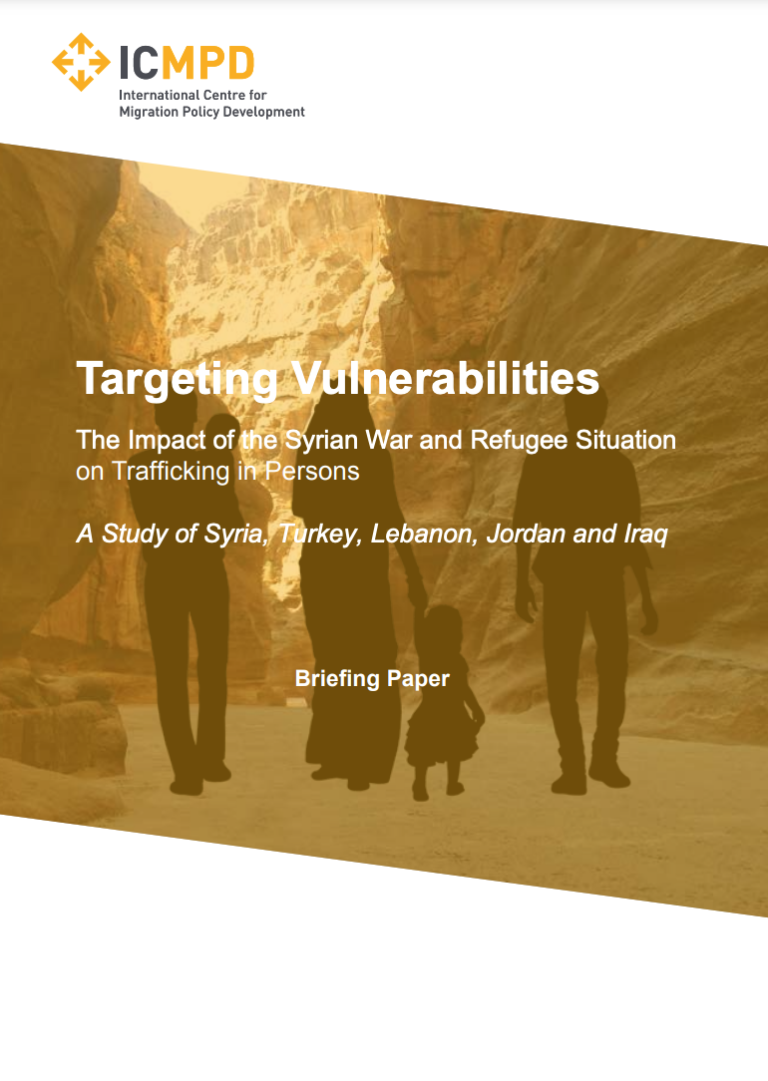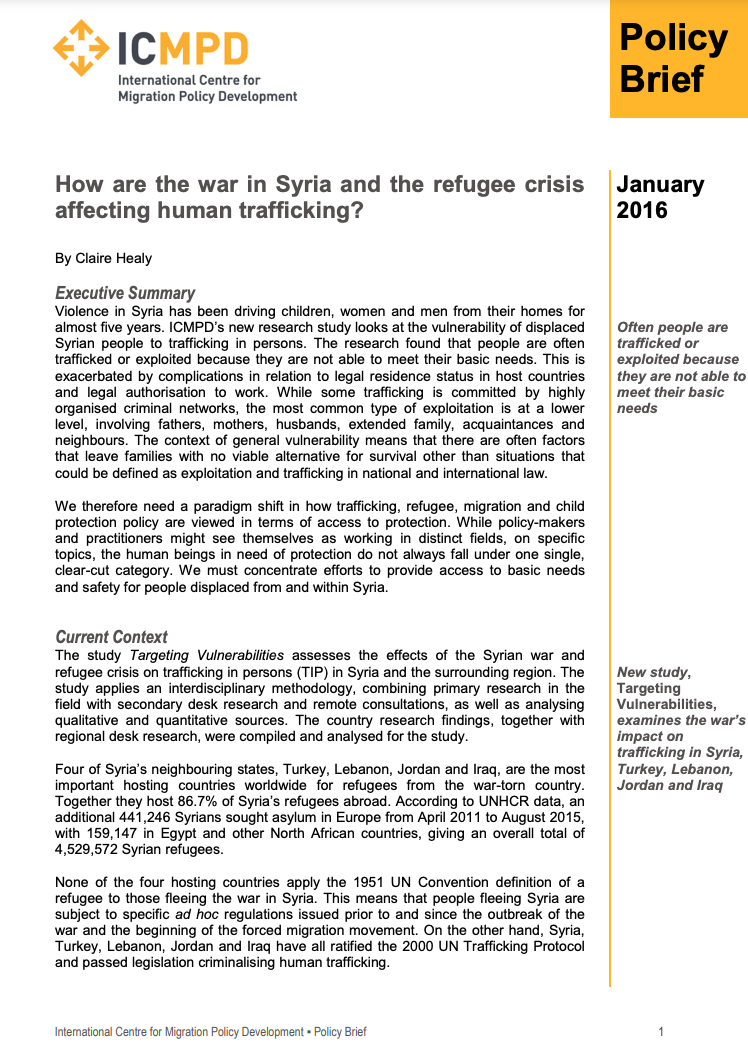Over four years of conflict have seen increasing numbers of people flee their homes in Syria, becoming internally displaced or seeking refuge beyond Syria’s borders. The overwhelming majority of those forced to flee abroad are residing in the neighbouring countries: Turkey, Lebanon, Jordan and Iraq. Based on comprehensive research and analysis, Targeting Vulnerabilities examines an often overlooked aspect of the war and refugee crisis: trafficking in persons. This Study is orientated around the research question: What are the effects of the Syrian war and refugee situation on trafficking in persons in Syria and its neighbouring countries?
This Study, the first of this kind, examines the patterns and characteristics of internal and cross-border displacement since the war, as well as reception arrangements in the hosting countries. The results of the research on situations of vulnerability to trafficking and on indications of trafficking cases are presented and analysed. The Study is the result of the project Assessment of the Impact of the Syrian War and Refugee Crisis on Trafficking in Persons (AIS-TIP), implemented by the International Centre for Migration Policy Development (ICMPD) and financially supported by the United States Department of State Office to Monitor and Combat Trafficking in Persons (J/TIP).
One of the main conclusions of the research is that much of the exploitation taking place is not carried out by organised transnational groups, but rather involves family members, acquaintances and neighbours. Families and communities displaced by the war are often left with no viable alternatives for survival other than situations that can be characterised as exploitation. The vulnerabilities they are experiencing therefore contribute to the likelihood of both exploiting and being exploited. The key factors influencing these vulnerabilities are related to the humanitarian crisis itself and to difficulties experienced in obtaining and maintaining legal residence status and authorisation to work in the hosting countries. In addition, in a context where, as a result of the Syrian war, Turkey now hosts the largest number of refugees in the world, and Lebanon has the highest proportion of refugees in its population of any country, host communities, as well as displaced people, are becoming increasingly vulnerable.



